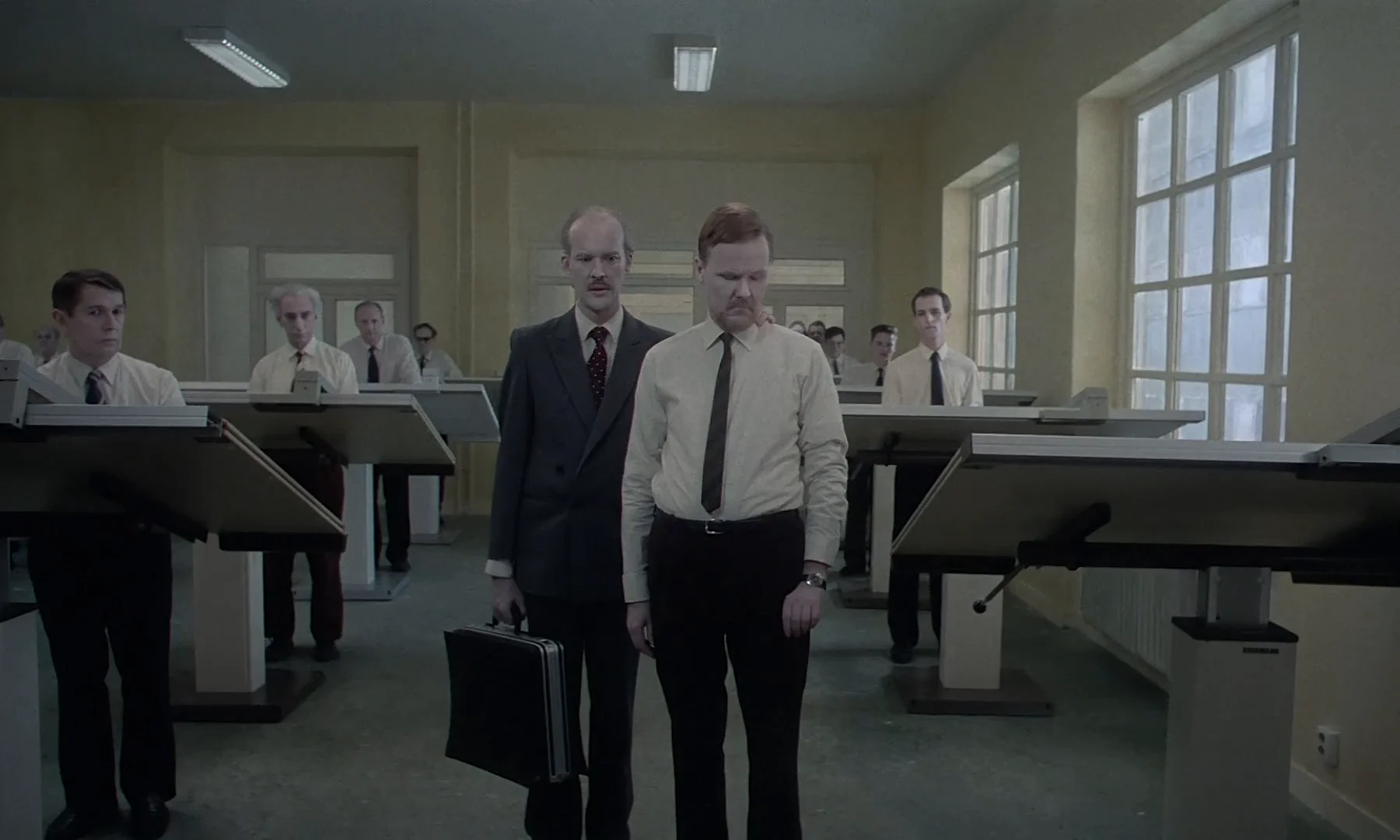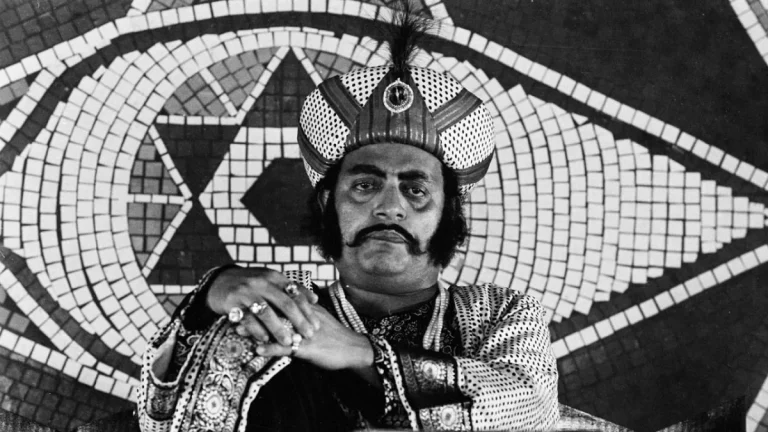Roy Andersson’s ‘World of Glory’: Five years ago, American anthropologist and anarchist David Graeber delivered a lecture at RSA, elaborating on his controversial 2013 essay “On The Phenomenon of Bullshit Jobs,” published by Strike! Magazine. The article was read over a million times, and it was also translated into a staggering 17 languages. And, if that isn’t enough, the proliferation of such a demeaning facet of humanistic endurance has left the world in shock, no matter which part of it you belong to. It is inherently meaningful to find qualms of degradation in meaninglessness. The author refers to it as a ‘gigantic embarrassment’ in our society, helmed by its ultimate audacity of recurrence in a neoliberal environment.
In the short comedy “World of Glory” (1991), Andersson tries to achieve a similar sense of categorical apathy. It’s a prototypical lamination of a Swedish countryside, a ghost town that seems to be regurgitated into life. How? Well, humans speak like automatons, initiate robotic responses, and lament in a similar way as Artificial Intelligence pretends to resolve all the problems of the Unconscious.
The protagonist, called ‘The Man,’ struggles to streamline the conjunctions of value judgments and posits a direct engagement with the abyss—a terrible ending to the decay of birth. The director systematically shows how humans are predisposed to glycation – they are cooked. And with the ethical behaviors of the anthropological world comes a sense of radical cluelessness. What does the ‘I’ want to do with me? Is it a game of ‘snakes and ladders’ or simply a board of checkers? Why is the world screaming, and so is my heart?
The film has quite an amusing resonance with Ecclesiastes 1:2 – “Utterly meaningless! Everything is meaningless.” It is as if The Man is scared of losing chastity. He doesn’t want to let go of the goblet of wine presented to him by the priest, “Christ shed his blood for you.” The Man posits as a creature of blood-thirsty rancor, devouring the sentient presence of His Father. He fails to act in unison with the world, raising a hue of abstract inertia, impoverishing him of the pleasure of living. The relationships he is engaged with isolate and alienate his concerns. The visit to his brother’s office is treated with the general dismissal of his affection.
He declares, “This is my brother. My baby brother,” while his brother checks the time on his watch. It is a radical statement on the justification of productivity, an empty state of darkness that we push ourselves in, blinded by the illusion of ‘busi-ness’. It is not a surprise that the following scene engages with the prodigal son. Initially, he imposes a prolonged period of awkward silence, provoking a disturbing element of unease. Following that, the Man realizes it is causing substantial discomfort to his audience, thus deciding to introduce his son as “a talent.” That’s all he could think of.
The set shows his son getting tattooed on the forehead, which he promises to remove in 10 years’ time. His son’s response to his father’s act is just a simple surrender to the guardian. He was immunized into turning this morose context into ‘a legacy,’ ‘a gift,’ an asset he must stick to and uphold throughout his life. The characters are all white-faced clowns of Vendetta, except that his wife is not shown till the very last scene. The matriarchal shareholder of the household, powerfully portrayed as a self-serving creature of whims, does not share her husband’s meals nor his bed, for that matter. It is only to control his endless night paralysis that she accompanies his nightwalks. For the mechanized man, darkness is synonymous with blindness, but so is light.

A foggy bar. Few inexpressive faces. Glasses full of alcohol (the only bright colors in the entire film). The Man enters. Falls. Howls – “I am blind. I can’t see.” Nobody moves. Plunging like a pigeon trapped in a hardwired net, he awaits the casual unbinding. He is an expectant who can still hope. The issue is resolved, and the crowd gets back to their drinks. The Man laughs out loud in apparent cheerfulness post-rescue – an endless mockery of philanthropy and the lack of heart in any cause. That’s the synopsis of the depressive state of affairs in what we see every day. Andersson wants us to analyze whether we are doing it right now.
The opening scene of the film casts a similar overtone as the Holocaust, a modern-day disaster of herds, naked bodies encapsulated in truckloads to serve the purpose of humanity, the Siberian hard labor brought to life. This scene is carried over in fragments throughout the story, especially when we visit his mother in the hospital. It is within the room that the Man wants his mother to know – “I am very fond of her.” The desperate urge to prove his notional capacity is terrifying. It reminds the reader of Sylvia Plath’s poem ‘Tulips,’ where she finds the flowers offered beside her bed to be too ‘excitable’ in the harsh whites of winter. She further states:
“They have propped my head between the pillow and the sheet cuff
Like an eye between two white lids that will not shut.
Stupid pupil, it has to take everything in.
The nurses pass and pass; they are no trouble…
Doing things with their hands, one just the same as another…”
Who are we to deny our fear of blindness? This short film gives a voice to all those resisting commonalities, and Andersson blatantly notices. He laughs in pain and notes his failure to live.






